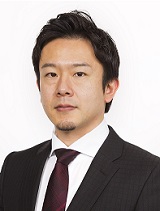Message

Professor of Surgery (Department of Surgery), Keio University School of Medicine
Director of Hospital, Keio University Hospital
Project Leader, Business Promotion
Yuko Kitagawa
We believe it is the educational philosophy and mission of the Keio University School of Medicine, to understand the teachings of Isshin Dokuritsu (to think for oneself and act) propounded by Yukichi Fukuzawa, while emphasizing wisdom, virtue, and sophistication as we embark on a journey to the world as the leader who is fit to lead the society, and lastly, to train medical professionals who can become "physician scientists (physicians equipped with scientific perspectives)" that can achieve patient-centered medicine. In the field of endoscopic surgery, Mr. Fukuzawa had as a matter of fact already predicted more than 100 years ago that surgical procedure will specifically be performed by employing endoscope, and has written that medicine will develop as well as advance from surgery. Under this educational philosophy, we will build and implement a solid educational program that nurtures a global perspective which can contribute to the development of the endoscopic surgery in the future. We will accomplish this as we take responsibility of having introduced this surgical procedure to Japan and by fully mobilizing our extensive experience and human connections. Furthermore, it is our thinking to nurture human resources that are disciplined at all times yet who can deliver truly safe and sophisticated healthcare services to patients.
This program will nurture leaders who are equipped with the basic knowledge and skills that encompass all medical fields and that are capable of delivering safe and sound surgery beginning from the planning stages and throughout in a consistent manner while possessing a global perspective which can make a difference on the international stage. For that reason, we have developed two courses and structured a program that will shift to a higher level of surgical procedure in phases. First, 1) In the Basic Training Course, by taking advantage of the strong points as a university, understanding of the features and issues surrounding endoscopic surgical equipment will be cultivated in collaboration with the Faculty of Science and Technology. Furthermore, we will provide hands-on educational program that incorporates large animals/cadaver training that is already in operation. 2) In the Advanced Training Course, we will develop medical professionals who can perform highly difficult surgery that is safe yet at a high level by having them learn the global standard. This will be achieved by training at other universities (Iwate Medical University, Tokyo Medical University) with extensive experience and medical cases, internship at the leading medical facilities in the world (South Korea, France), and by incorporating the participation in the best educational program in the world (IRCAD).

Assistant Professor of Surgery, Keio University, School of Medicine
Director of Endoscopic Surgery Training Center,Keio University School of Medicine
Hiroshi Yagi
"Broad-based, but in depth: To aim for an ideal educational system of endoscopic surgery"
There has been a dramatic development in the area of endoscopic surgery in recent years, and applicable diseases as well as operative methods have been expanding year after year. As a result, there has been an increase in surgical procedures for the diseased internal organs, which the procedure itself can extend to the border regions of the peripheral organs, and similarly, the number of surgeries to the peripheral organs to be operated at the same time. To safely implement these types of surgical procedures, it becomes necessary to possess sophisticated skills for the targeted organ, but to have broad knowledge that covers the overall endoscopic surgery which goes beyond just internal organs. However, up until now, the educational system of endoscopic surgery was considered as an extension of abdominal surgery of each organ. For this reason, there was no systematic curriculum which existed that taught the history of endoscopic surgery, the mechanism or the characteristics of the equipment, the operative procedure or surgical planning, or even a system to develop human resources who can comprehensively manage surgical procedures that reached across multiple internal organs.
This program has an attractive curriculum that imparts knowledge and operational procedures on endoscopic surgery in general by encompassing various fields (breadth). In addition, the program intends to deepen (depth) the individual's competency in specialized fields through internships at overseas facilities that are ranked at the top in the world; through seminars on robotic surgery; and through management seminars on medical economics. We are convinced that the endoscopic surgery experts that have gone through this program will not only become a part of the solution to the medical accidents surrounding endoscopic surgeries as of late, but will also serve as a leader in this field that represents Japan who will spread their expertise around the world.

